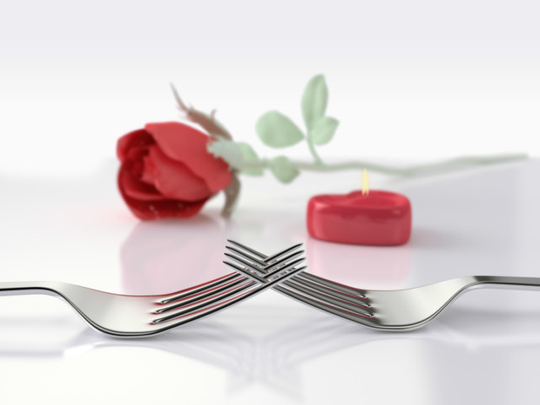
For the American writer Fanny Fern, writing in the 19th century, the way to a man’s heart was through his stomach. Since the time of the ancients, men and women have fed their lovers aphrodisiacs of all varieties. Egyptian pharaohs were aroused by radish, Greeks celebrated figs, and Romans believed aniseed got them going. In fact, many foods commonly used in the Middle East have been revered as mood enhancers, but science isn’t always in agreement. GN Focus finds out more.
Pine nuts
Middle Eastern people have traditionally incorporated pine nuts into their diets for the high mineral and vitamin content and because of a long history as a natural Viagra. They also contain zinc, which is linked to a healthy sex drive, and magnesium, which, according to surgeon and television personality Dr Oz, makes it more difficult for testosterone to latch onto proteins in the body, pushing the hormone into the blood and elevating the sex drive.
Serving suggestion: In a pesto with basil and olive oil.
Oysters
Legend has it that Casanova, the Mediterranean ladies’ man, ate 50 oysters for breakfast every day, a feat that apparently stimulated his libido. Although they are high in zinc, which is found in sperm, scientists say these molluscs also contain amino acids that help produce sex hormones. In a 2005 study, a team from Barry University, Miami and the Laboratory of Neurobiology in Naples found that two chemicals found in oysters when injected into rats triggered a chain reaction of hormones that ended with the production of testosterone in males and progesterone in females. Dr George Fisher, who led the research, said the results led him to believe the shellfish are aphrodisiacs and advised eating them in spring, when the concentration of the acids was highest.
Serving suggestion: Eat raw or drizzled with a grape vinaigrette.
Pomegranate
Another Middle Eastern favourite, pomegranate seeds and juice were recently found to have a positive effect on erectile dysfunction in a small study by researchers at the University of Southern California. The seeds are also full of antioxidants that support blood flow, and its juice lowers blood pressure.
Serving suggestion: Eaten plain, juiced, with a salad or cooked with lamb in the Iranian dish fesenjan (a thick tart stew).
Watermelon
The juicy fruit has long found favour in hot climates for its cooling properties, but a 2008 research by Texas A&M University found it full of antioxidants and phytonutrients such as lycopene, beta-carotene and citrulline. The chemicals react with the human body to set off healthy reactions such as relaxing blood vessels in the way Viagra does.
Serving suggestion: Nigella Lawson makes a salad of watermelon with feta cheese, black olives, mint, parsley and a dressing made from lime and olive oil.
Coffee
First discovered in Arabia, coffee is renowned across the world as a stimulant that increases the heart rate and improves blood flow. A 2005 study conducted with female rats and published in the journal Pharmacology, Biochemistry, and Behavior suggested that coffee could put women in the mood for sex. Rats that had their first shot of caffeine before mating were eager to seek out male partners after sex, researcher Fay Guarraci told WebMD at the time the study was released. However, it pays to be cautious: excess coffee has been reported to raise cortisol levels and cause hormone imbalances.
Serving suggestion: Top it with a shot of whipped cream.
Chillies
This harissa ingredient mimics arousal by raising the heart rate and stimulating the release of endorphins, which are the brain’s feel-good chemicals. Chillies also contain capsaicin, which stimulates nerve endings and raises the pulse rate.
Serving suggestion: In a cocktail, curry or with chocolate, another mood enhancer. n








